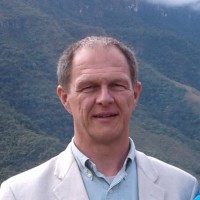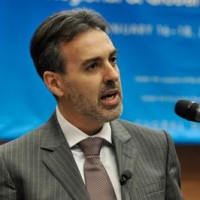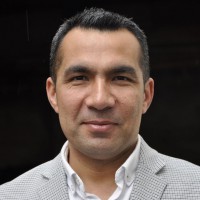Nature, Climate and Health Cluster

Globalisation, demographic and technological expansion, and the resulting transactions between the economic, social, and ecological aspects, directly and indirectly influence the prospects of achieving sustainable development. The interconnected problems confronting states and communities today include the multifaceted impacts of climate change, water and food insecurity, managing trade-offs toward ecological balance and socioeconomic commitments while achieving development targets and ensuring the health and well-being of populations.
The health of our planet and its inhabitants are being pressed to its limits. The ticking clock of climate change grows louder by the day, and the nature and scope of the change required to avert a catastrophic situation are daunting and, perhaps more than any other challenge, require collective, cross-border, and decisive action. Moreover, the multifaceted impacts of climate and water crises require priority action in order to meet the targets of the Sustainable Development Goals (SDGs). While there remains a sharp disconnect between science and action, the steps taken to address these issues are often critiqued as not enough to address the escalating rise in global temperatures and or to mitigate the diverse impacts of climate extreme scenarios such as floods, storms, forest fires. The task at hand is threefold: meet the requirements of the present without compromising or hindering future generations; develop innovative and transformative pathways for the future that rights the climate wrongs underpinning global society today; and to ensure the resilience of communities and states to water risks and conflicts, including focused attention on psychosocial wellbeing. In general, how we govern our environment and natural resources, and how we organise efforts to achieve sustainable development, will be key to overcoming these challenges.
While our planet suffers, so do we, as recent reports point out that more than a billion people are currently affected by adverse mental health issues, with the wide-ranging impacts of climate change and disasters increasingly acknowledged as related to such conditions. Challenges of nature and the mind are equally met by challenges of biology, as the Covid-19 pandemic has demonstrated. In an interconnected and globalised world, where the droplets from a sneeze on one side of the earth can quickly be felt on the other, disease and pathogens do not know, and certainly do not respect, borders of any kind. The fight to bring the Covid-19 pandemic under control has clearly illustrated the regional and global dimensions of human health. While the need for synchronisation, coordination, and collaboration between the local, sub-national, national, supranational (regional), and global levels of health governance and policymaking across all sectors is pertinent, in addition, the policymakers, public agencies, and resource managers across all sectors, and particularly in transboundary regions, must recognise the need to improve the spectrum of economic growth within the mandate of ecological and social well-being and concentrate on the efforts to enhance the human-nature relationship.
An in-depth investigation of interactions in the nature, climate, and health nexus remains crucial to understanding the social, cultural, political, and financial implications of these crises. Communities, states, and regions writhe on fulfilling the food, energy, water, and human security mandates.
The Nature, Climate, and Health Cluster aims to examine how shared solutions to sustainability challenges should be best managed to balance environmental obligations and socioeconomic commitments, which governance structures, at which level, are needed to implement these best practices, and what is, or could be, the role of regional organizations in environmental governance. Noting that the challenges we face are cross-border and regional or even global, the activities and projects in this cluster will address aspects such as deforestation in the Amazon to the damming of the Nile, the energy transition in the Middle East to the melting ice of the Arctic. In other words, this cluster has a particular interest in the governance challenges of natural resources, in particular shared water systems that are located across borders. In addition, we will investigate the roles that regions can play in maintaining and ensuring global health, including: regulating trans-border human mobility and goods flows, understanding the water, climate change and health nexus, managing sanitary situations in border cities, securing cross-border flows of medicines, health appliances, and services, coordinating the cross-border sharing of health infrastructures in crises, pooling financial resources for investments in priority research in health, exchanging best practices, harmonising policy-interventions, and addressing health situations of migrants and refugees. The health component will also take note of the evolving “One Health” framework that calls for an inclusive and integrated approach to environmental and human health, including psychological, mental, and physical health.
Projects
- Researcher: Nidhi Nagabhatla
- Partners: Scottish Association of Marine Science, The Natural History Museum, University of Malaya
- Funding: Global Centre on Biodiversity for Climate
- 1 Dec 2023 – 30 Nov 2026
International Thematic Network on Climate-Migration-Health (CliMigHealth)
- Coordinator: Ilse Ruyssen
- Partner institutes: Ghent University, UNU-CRIS, Makerere University, University of Ghana, ICRAF, University of Zambia, University of Malawi, Stellenbosch University, London School of Hygiene & Tropical Medicine, EIEE, Aarhus University, University of Göttingen, KIT Royal Tropical Institute, UNU-MERIT, UNU-EHS, UNU-INWEH, University of California, University of Queensland
- Funding: Ghent University and partner institutes
- 2020-2025
The Energy Transition and the Changing Relations between the MENA and the EU
- PhD Fellow: Reinhilde Bouckaert
- Promotor: Claire Dupont
- Funding: AAP Ghent University
- 1 July 2019 - 30 June 2024
Investigating Water and Climate-Related Conflicts and Migration Towards Engagement and Equity focused Solutions for Adaptation, Human Security and Policy Integration in Africa
- PhD Fellow: Alix Debray
- Promotor: Ilse Ruyssen
- Funding: BOF Ghent University (UNU-CRIS label)
- 1 October 2019 – 30 September 2021 (renewable)
Completed Projects
Parliamentary Deliberation in Inter-Regional Relations (PADIRE): An Analysis of Climate Change Debates in the EU’s Parliamentary Assemblies with the ACP, the Mediterranean, Latin America and the Eastern Neighbourhood Regions
- Researcher: Reinhilde Bouckaert
- Promotors: Sarah Delputte and Sebastian Oberthür
- Funding: UNU-CRIS, 1 July 2018 – 30 June 2019
- http://cris.unu.edu/padire
Understanding Migration Drivers: The Role of Health and Climate Factors
- PhD Fellow: Els Bekaert
- Promotors: Ilse Ruyssen and Gerdie Everaert
- Funding: BOF Ghent University (UNU-CRIS Label)
- 1 November 2018 - 31 October 2022
Transforming the forest together? Transnational cooperation on justice advocacy in the EU's Voluntary Partnership Agreements (VPAs)”
- PhD Fellow: Elke Verhaeghe
- Promotors: Jan Orbie and Sarah Delputte
- Funding: FWO
- 1 Oct 2019 – 30 Sep 2023







































